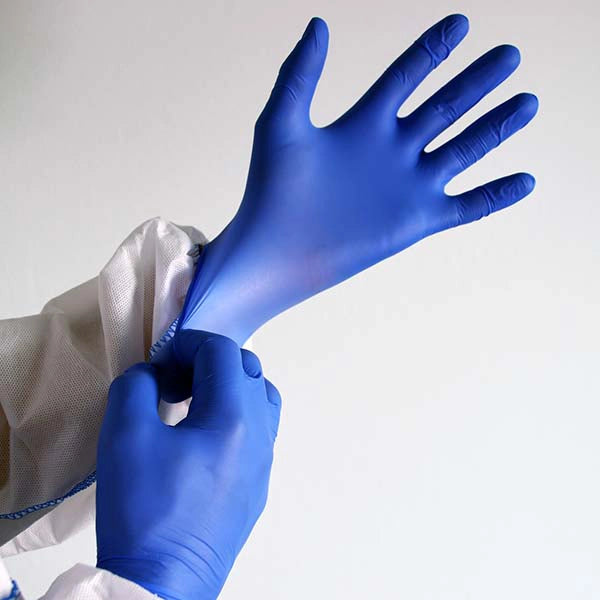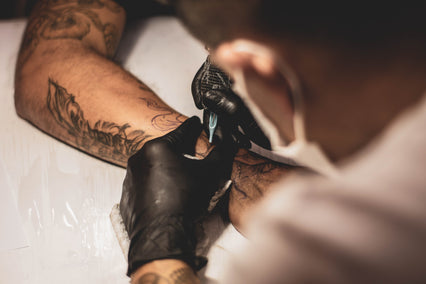Disposable gloves are one of the required personal protective equipment in many industries, such as healthcare, food manufacturing and processing, dental care, and more. There are different types of gloves, and each is used for specific tasks and environments.
Most people use latex gloves because of their affordability, dexterity, durability, and protection they provide. However, latex gloves are not as sturdy as stainless steel. Some factors can affect the protection you get from latex gloves, especially chemicals, bodily fluids, and other liquids.
Let’s discuss what can affect the permeability of latex protective gloves.
What is Gloves Permeability?
Permeability is a term used to identify the condition or quality of latex gloves’ protective layer that allows various elements, such as solids, liquids, and gasses, to pass through. While the permeation rate pertains to how quickly or slowly the chemicals, liquids, gasses, or solids pass through the latex gloves’ protective layer.
It is also the word used for the rate of absorption, spread, diffusion, or assimilation of ingredients on latex gloves.
How Permeability of Latex Gloves Tested?
To check and test the permeation rate and quality of latex gloves, parts of the gloves are cut. Then, the sample pieces are introduced to different chemicals to ensure every part of the latex gloves provides equal protection.
The thickness is also checked and tested in the permeation test.
After being exposed to chemicals, professionals will start the chemical analysis to check the permeation rate of latex gloves. The standard method of checking the permeability of gloves differs from manufacturer to manufacturer.
What Can Affect the Permeability of Latex Gloves?
Various things can affect the integrity of your Latex Gloves. Remember, latex protective gloves are quite thin. Sharp objects or too strong chemicals can affect the permeability of your latex gloves. Here are three common things that can negatively affect the permeability of latex gloves.
Fingernails, Rings, And Bracelets
Long and sharp fingernails, bracelets, rings, and other jewelry pieces can pull, rip, and tear latex gloves. Small holes, rips, and tears can let chemicals, bodily fluids, and other liquids pass through. This is not something you will want for your latex gloves.
It is necessary to remove all the accessories and pieces of jewelry not to affect the permeability of latex gloves. Then, wash your hands, air dry or use a clean, dry towel, and wear latex gloves.

(Photo by Clay Banks from Unsplash)
Chemicals
Latex is a naturally occurring rubber substance which can be affected by numerous chemicals. These chemicals include the following:
- Ethyl acetate is present in many cigarettes, glue, perfumes, nail polish removers, etc.
- Paint removers
- Cresophene
- Chorispray
- Rubber solvents
If exposed to these chemicals, the protection your latex gloves provide will only last for about 15 to 60 minutes, sometimes less depending on the quality of the latex gloves you are wearing. We highly recommend immediately removing your medical gloves, washing your hands thoroughly, and replacing your latex gloves.
There are other types of disposable gloves that you can use if you are handling chemicals. You can use nitrile gloves, vinyl gloves, or neoprene gloves. Take note of the chemicals and tasks you will be handling before choosing the types of gloves you will use.
Lotions
Unlike synthetic rubbers, latex is more sensitive to petroleum-based and oil-based ingredients included in lotions. These ingredients will weaken and break down latex and increase its permeation rate. This is why washing your hands is important.
Don’t wear hand lotions, moisturizers, oils, creams, and Vaseline before wearing latex protective gloves.
👉 Check Out Our Black Powder Free Latex Gloves and save up to 50% today
If you use latex gloves as examination medical gloves, ensure your patient or client is not wearing any makeup or products with petroleum-based and oil-based ingredients.
Conclusion
The answer to what can affect the permeability of latex gloves are oil-based and petroleum-based hand products, sharp objects, and various chemicals. Also, the storage can also cause the deterioration of latex gloves. Ensure your latex gloves are stored away from direct sunlight and high temperatures.
Now that you know what can affect the permeability of latex gloves, make sure to avoid these products and ingredients. Always check the integrity and state of your latex gloves before wearing them.
Read More: How To Use Exfoliating Gloves (5 Easy Steps)
Check out the best Latex Gloves from gloves.com
When you are ready to order your latex gloves, visit gloves.com. We have a wide selection of high-quality latex gloves to choose from. Whether you are searching for multipurpose or medical-grade latex gloves, you can find them here! We also have blue, white, and black latex gloves at wholesale prices.
All of our latex gloves are checked for quality control to ensure you are getting the protection you are looking for. Take a closer look at our latex gloves and order the glove size that fits you!
Latex Gloves Permeability: Frequently Asked Questions
Can I decontaminate and reuse gloves?
In general, you can decontaminate protective gloves. However, this will depend on the glove material. If you use disposable protective gloves, such as latex gloves, nitrile gloves, vinyl gloves, and neoprene gloves, throw them away after use. Disposable gloves are designed and created for single use only.
Also, the decontamination procedure for reusable gloves will cost more than purchasing a new set of gloves.
All glove types have a limited-use time. Always be mindful of the permeability of gloves to ensure you and the people around you are protected and safe.
How can I tell if latex gloves lose their integrity?
The most common signs of deteriorated latex gloves are swelling, shrinking, splitting, tearing, holes, and softening. If the latex gloves you are wearing show these signs, it is best to replace your latex gloves, wash your hands with soap, dry your hands, and replace your gloves as soon as possible.
Chemicals and bodily fluids will start to permeate into the latex medical gloves and make contact with your skin.
If your newly purchased latex gloves show these signs, you should contact your supplier.
Does acetone melt gloves?
Acetone is an organic material and can dissolve in water. In general, latex gloves are resistant to acetone. Hence, they are ideal for nail spas and salons.
However, if you are using other types of disposable gloves, you need to check their resistance to acetone. For example, nitrile gloves are not resistant to acetone. If nitrile gloves are exposed to acetone, they will quickly deteriorate.







